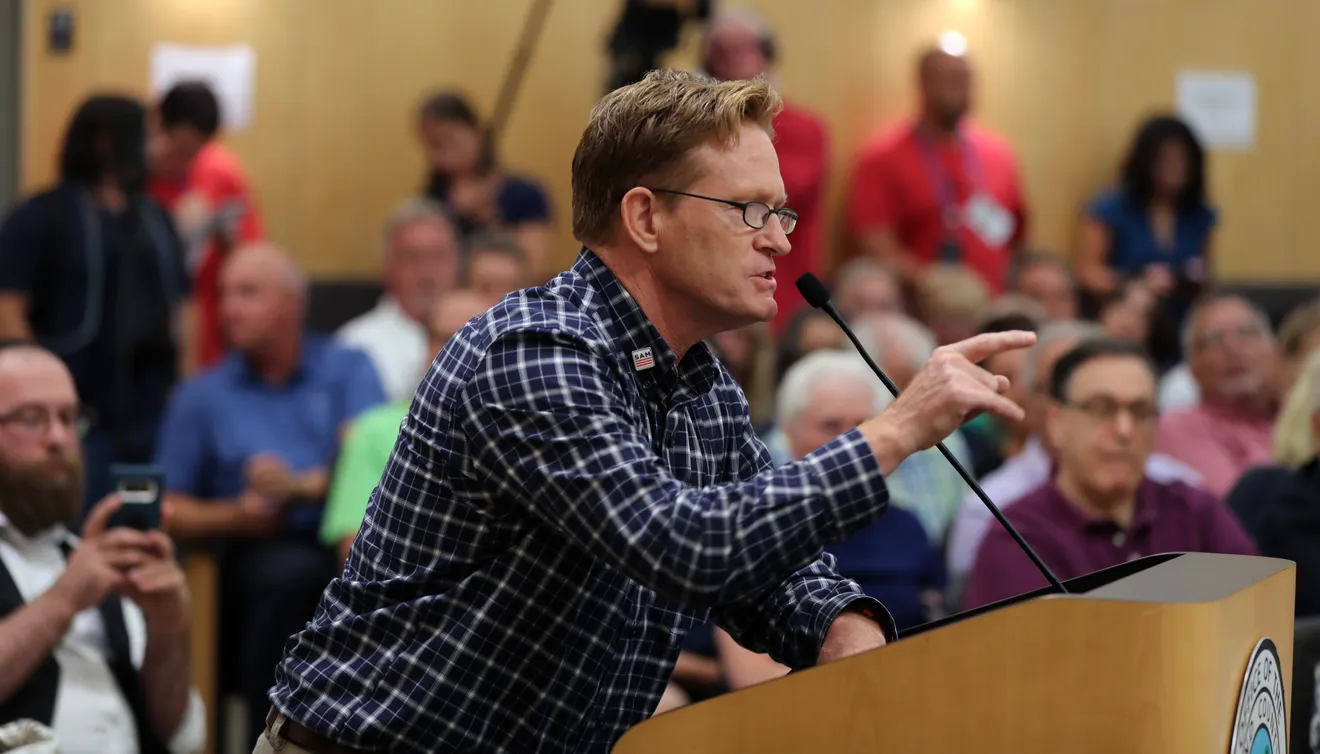Foil: Your right to Know.
“Rockland’s redistricting map for the government’s 17 Legislature seats has jumped another hurdle to become official.
A New York State Supreme Court Appellate Division panel rejected an appeal to void the map approved by the Legislature and signed by County Executive Ed Day in January.
The challenger, Michael Parietti of Ramapo, said the New York State Court of Appeals would unlikely take up his appeal and overrule the appellate panel and Supreme Court Justice Sherri Eisenpress. The state’s highest court, he said, usually takes cases with constitutional issues and doesn’t usually review unanimous lower court decisions.
Parietti, a longtime political activist and candidate who is not an attorney, criticized the appeals panel for its decision. He has represented himself previously before the panel.
“This is yet another incomprehensible decision and makes a mockery of the 2021 amendment to Municipal Home Rule Law intended to govern redistricting of county Legislatures, as the ruling renders it impossible to enforce the provisions of the new law,” Parietti said.
“The court essentially says that, unlike state-level apportionments, there is no deadline for a decision in a legal challenge to a county-level apportionment,” he said. “This means the offending municipality can simply file motion after motion to run out the clock on the case until the election cycle has commenced or even been completed.”
Decision: Appellate Division judges reject challenge to Rockland redistricting plan
Rockland redistricting: Supreme Court justice rejects challenge to new map

Michael Parietti addressing the County Legislature Photo: The Journal News
Appellate Division ruling on Michael Parietti’s appeal
The Appellate Division panel in Brooklyn rejected all his legal arguments in a three-page decision released Tuesday. The four-judge panel heard arguments Monday, expediting the case as candidates are seeking ballots spots for the June primary and the November election.
Parietti argued in court that the map setting 17 legislative boundaries was unconstitutional and in violation of the federal Voting Rights Act and state laws. He contended the map disenfranchised non-white voters, broke up communities into different districts, boosted the chances of incumbents winning re-election, and further empowered the Orthodox-Hasidic Jewish communities to decide who sits on the Legislature.
The county’s special counsel, Robert Spolzino, countered that Parietti lacked standing to take legal action representing other citizens and to assert racial dilution under the voting rights law. Spolzino also argued Parietti offered mostly opinion and speculation without empirical evidence.
The appellate justices upheld Eisenpress’ decision in March on all the issues raised by Parietti, including the knockout blow that he lacked legal standing to challenge the map in court.
The panel supported Eisenpress’ contention that Parietti couldn’t, as a white voter, challenge the map based on non-white racial grounds, and that he didn’t live in the districts he was challenging. She also wrote actions by the Legislature “are entitled to a strong presumption of constitutionality.”
The panel also rejected Parietti’s arguments that Eisenpress was politically conflicted and should have recused herself as several other justices sitting in Rockland did. The panel found he failed to provide a basis for the judge’s recusal. The panel found the “Supreme Court properly concluded that he lacked standing to pursue any claims pursuant to the Voting Rights Act, Municipal Home Rule Law § 34(4), or other authority relating to county legislative districts that he did not reside in, or any claims concerning alleged vote dilution impacting any minority groups of which he was not a member.”
The justices also ruled Parietti “failed to demonstrate his standing to pursue his claims to the extent they relate to the district in which he resides, including his assertion that the new district map improperly advantaged the incumbent in the petitioner’s district and that the district was insufficiently compact since he did not allege sufficient facts in the petition establishing the requisite personal harm.”
Parietti, a West Point graduate, said the most telling aspect of the court’s decision is that he had no standing in his district to make a court challenge.
He also said his case is supported by seven legislative districts having been drawn to discourage competition. He said the 2023 election cycle shows that in six of those districts, the incumbent will be running unopposed.
“It is obvious to see that this case was too inconvenient to be given its fair measure of legal due process,” he said.”
Read the complete Journal News coverage of this story here.





